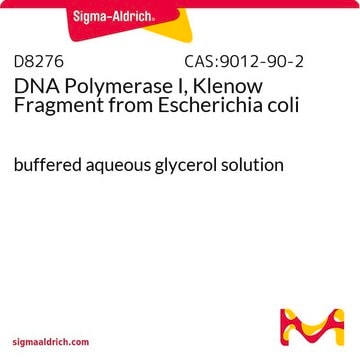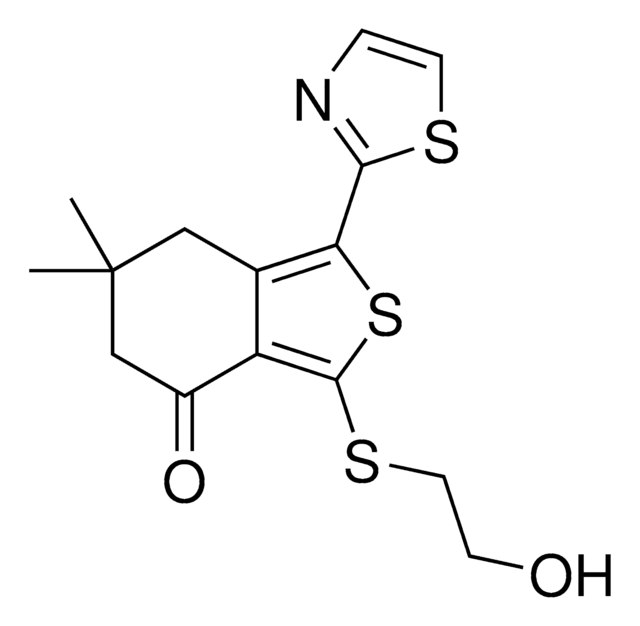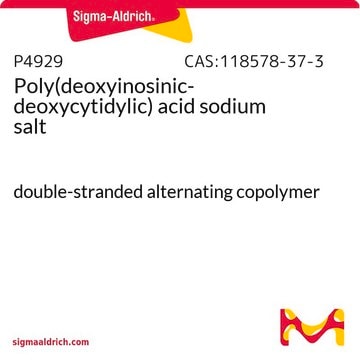KEM0031
Klenow Fragment
Ultra-pure enzyme for nucleic acid modifications
Zaloguj sięWyświetlanie cen organizacyjnych i kontraktowych
About This Item
Polecane produkty
klasa czystości
for molecular biology
Próba
>99% (SDS-PAGE)
Formularz
buffered aqueous solution
aktywność właściwa
5,000 U/mg
stężenie
5,000 U/mL
Warunki transportu
dry ice
temp. przechowywania
−20°C
Opis ogólny
Klenow Fragment is a mesophilic DNA polymerase derived from the E.coli Polymerase I DNA-dependent repair enzyme. The enzyme exhibits DNA synthesis and proofreading (3′ → 5′) nuclease activities, and, in the absence of the holoenzyme′s (5′→3′) nuclease domain, displays a moderate strand displacement activity during DNA synthesis. The protein is expressed as a truncated product of the E.coli PolA gene.
Zastosowanie
Suitable for:
- DNA blunting by fill-in of 5′ overhang
- Second strand cDNA synthesis
- Sequencing
- Site-specific mutagenesis
Cechy i korzyści
- Ultra-purification process for ultimate enzyme performance
- Highest quality specifications for ultimate product consistency
- Undetectable DNA and nuclease contamination
Komponenty
Supplied with:KEM0042B (10X Blue Buffer)
Definicja jednostki
1 unit is defined as the amount of polymerase required to convert 10 nmol of dNTPs into acid insoluble material in 30 minutes at 37° C.
Postać fizyczna
Supplied in 100 mM KPO4, 1.0 mM DTT, 0.1 mM EDTA, and 50% glycerol at pH 7.4 @ 25° C.
Inne uwagi
Source of protein: A recombinant E. coli strain carrying the Klenow Fragment gene.
Unit size: 2,500 U
Ta strona może zawierać tekst przetłumaczony maszynowo.
produkt powiązany
Numer produktu
Opis
Cennik
Kod klasy składowania
10 - Combustible liquids
Wybierz jedną z najnowszych wersji:
Certyfikaty analizy (CoA)
Lot/Batch Number
Nie widzisz odpowiedniej wersji?
Jeśli potrzebujesz konkretnej wersji, możesz wyszukać konkretny certyfikat według numeru partii lub serii.
Masz już ten produkt?
Dokumenty związane z niedawno zakupionymi produktami zostały zamieszczone w Bibliotece dokumentów.
Laure Rittié et al.
Journal of cell communication and signaling, 2(1-2), 25-45 (2008-09-04)
Since molecular cloning has become routine laboratory technique, manufacturers offer countless sources of enzymes to generate and manipulate nucleic acids. Thus, selecting the appropriate enzyme for a specific task may seem difficult to the novice. This review aims at providing
Nasz zespół naukowców ma doświadczenie we wszystkich obszarach badań, w tym w naukach przyrodniczych, materiałoznawstwie, syntezie chemicznej, chromatografii, analityce i wielu innych dziedzinach.
Skontaktuj się z zespołem ds. pomocy technicznej







